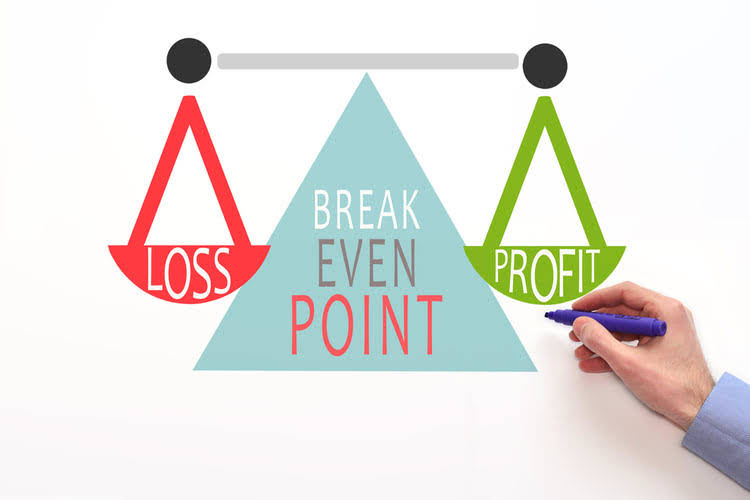
We hope this guide to invoice factoring will help you make the best decision when it comes to non-recourse invoice factoring companies. You may be wondering what kind of factoring company charges hidden fees or penalties. Some accounts receivable financing companies will charge these to make up for the high interest rates they have on their loans, so it might pay off to do some research before taking out any loan with them. Invoice financing (also known as accounts receivable financing) is a type of short-term loan that allows businesses to borrow money against their unpaid invoices. The unpaid invoices serve as collateral, and once the invoices are paid off, you can pay back the loan, minus any fees owed to the lender.

Recourse vs Non-Recourse Factoring
That means if an invoice is unpaid, Riviera Finance becomes the credit manager and assumes the risk. With TCI Capital, you’ll get fast approvals, simple onboarding, and month-to-month terms. They offer high advances and same-day funding to provide you with reliable cash flow. invoice financing Breakout Capital offers a very flexible invoice factoring solution that’s great for new and small businesses alike. For example, a business in the construction industry is considered riskier than more traditional businesses, so the advance rate may be closer to 60%.
What is the difference between invoice financing and invoice factoring?
Rates, credit lines, and terms may vary based on your creditworthiness and are subject to change. Other commercial credit products are offered by a variety of Bluevine’s third party partners. Bluevine is not involved in the issuance or servicing of these products.
Are factored receivables subject to taxes?
Lenders and investors will look at these criteria, among others, when deciding whether or not to work with your business. As you might expect, the stronger your qualifications, the more likely you are to qualify for the best loan products and work with the best investors. Then, once you have an initial idea of how to finance your business, you’ll be ready to take the next steps in the process. Therefore, after you’ve determined why you need funding and how much you need, you’ll be ready to figure out which financing method is best for you. So, as you can see, between debt, equity, and creative financing solutions, there are a number of ways of financing a business. That said, small business grants can be difficult to qualify for and they’ll require an often highly competitive application process.
Difference between invoice financing and invoice factoring
Loan agreements will identify the issuing lender to small businesses at signing. Qualified applications will be submitted to the SBA as soon as possible. Bluevine does not guarantee that applications will be processed and submitted before PPP funds are no longer available. Approval and loan forgiveness are subject to your availability to meet government-set eligibility requirements.
- However, flat rate fees are generally higher than the variable fee structures.
- It is generally more affordable and is ideal for temporary needs such as raising children or paying off a mortgage.
- In short, Terry agreed to be paid a total of $19,600 instead of $20,000 in exchange for receiving most of his money right away, which helped him pay the crew who worked on the job.
- Bad debt protection is possible with non-recourse factoring, allowing companies to sell A/R confidently.
- However, invoice factoring or financing is typically not a fit for B2C companies or subscription-based revenue companies.
- Progress billing, pre-billing, and milestone billing are not eligible for invoice financing through SMB Compass.
A business line of credit approves a set amount of funding you can draw from over a period of time. Repayment terms start when you draw funds and are typically short from six to 24 months. It offers payment flexibility because you only draw the amount you need and pay interest on the funds you use.

How we make money
- You’ll also learn about a more convenient and faster way to generate invoices using Skynova’s business templates.
- Spot Factoring is the perfect option if you need to factor a single invoice and are not interested in long-term contracts.
- An “advance” rate is the percent of the invoice face value that you’ll receive upfront.
- Moreover, just like a business line of credit, a business credit card is revolving credit—using one, however, can give you speed and flexibility that you might not find with a business line of credit.
- You still own the unpaid invoices and remain responsible for collecting payment on them.
- Invoice factoring, also known as accounts receivable financing, is a financial solution that allows businesses to convert 70 percent to 90 percent of unpaid invoices into immediate cash.
- Namely, customers have to pay upfront to get the goods and services they need, but companies get extra time to pay.
But for small business owners, it’s an especially frustrating reality with potentially devastating consequences. With variable factor fees, rates increase along with how long it takes the customer to pay off the invoice. For example, the factor rate may start at 1%, increase to 2% in the second week and to 5% in the third week.
- However, the business needs immediate funds to cover operational expenses or invest in expansion.
- PayPal acts as both a digital wallet and a messenger between customers and banks.
- Generally, equipment financing allows you to finance up to 100% of the cost of a piece of equipment and have monthly payments with 8% to 30% interest on top.
- Compare the cost of your invoice factoring against how much interest you’d pay on a loan for the same amount to see if factoring is worth it.
- Your business then repays the advance out of a percentage of future sales or as a fixed payment.

But having a third party interact with clients could damage business relationships, so tread carefully. This is an alternative lending option for small business owners who need cash fast and can’t qualify for traditional business loans. But, not every small business is eligible for invoice factoring, and it has a few disadvantages, including costly fees.
Businesses Sell Their Invoices for Cash Flow and Bad Debt Protection
It doesn’t matter if you’re a solo operation or if you have a fleet of hundreds of trucks—they provide you with a straightforward and speedy process to get money in your hands as soon as possible. There’s https://www.bookstime.com/ also no application fee, which means you save even more money when using their service. SMB Compass is known for providing a versatile selection of lending options to businesses with different needs.
Breakout Finance
Make sure you know what you are responsible for when you sign on with a factoring company. With invoice factoring, you receive a lump sum for selling your invoices to an invoice factoring company. Instead, your accounts receivables are used as collateral to secure a flexible line of credit.